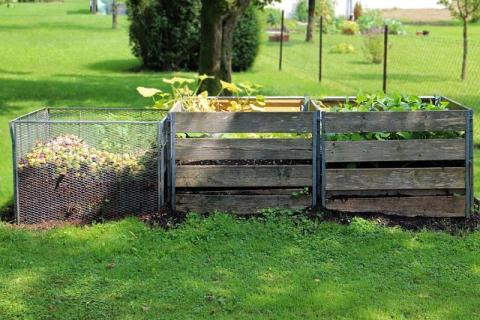The University of New Hampshire has been committed to the public good for over 150 years, and as part of UNH’s Sustainability Institute’s work, they cultivate and foster robust connections with community partners through several hosted networks which advance systemic sustainable change in New Hampshire and beyond. Recently, staff from two of those networks, NH Food Alliance and NH Farm to School, attended an important coalition building conversation around food waste and composting in our state schools.

On February 15, Stacey Purslow, the Program Coordinator for the NH Farm to School program, and Colleen Stewart, the Communications Coordinator at the NH Food Alliance, represented the UNH Sustainability Institute’s commitment to outreach in the New Hampshire community at a unique, multi-state conversation about reducing food waste in schools across New England.
The question underlying the conversation: how could a regional network of stakeholders support food diversion and composting programs in schools?
The meeting was hosted by the World Wildlife Fund (WWF) as part of their educational and grant making program, Food Waste Warriors. The WWF team gathered representatives from school food service, environmental agencies, food systems organizations, and state agencies from both New Hampshire and Maine at the University of Maine’s Portland campus for a presentation and networking session, with the goal of building a bi-state coalition around food recovery and diversion, primarily in school communities.
-
Paul Karpawich, a food system advocate from Amherst, New Hampshire shared about his work developing the New Hampshire Food Waste Diversion and Sharing Initiative, a collaborative effort between individuals, schools, and towns to develop best practices that reduce food waste and prevent it from going to New Hampshire’s landfills. The initiative will fund food diversion and composting programs in eight New Hampshire school communities this year. Paul was joined by educators from the Hollis-Brookline school district who spearheaded the food diversion and composting program in the district’s elementary schools. The New Hampshire Food Waste Diversion and Sharing Initiative allowed them to operate their program with such success in its first year that year two of the program will be 100% supported and funded through the Hollis-Brookline school board and budget.

- The NH Food Alliance views food waste programs in schools as an important piece in the larger agricultural and food security systems in New Hampshire – and is spearheading the development of the NH Food and Agriculture Strategic Plan in the state, which will prioritize development of food waste and diversion programming, initiatives, and businesses as one strategy for continuing to build a thriving food system in New Hampshire.
- NH Farm to School has championed food waste initiatives in the past and provides regular opportunities for learning and development of school composting programs in conjunction with school garden programs. Through stewardship of the NH Farm to School network and the New Hampshire School and Youth Garden Network, NH Farm to School Coordinator Stacey Purslow has supported that work.
- Susan Lee from the University of Maine’s Mitchell Center shared about how they are leading collaborative efforts for Maine’s schools to adopt food sorting and composting programs in the cafeteria.
- Various school food service representatives and educators shared about the successes and challenges they face in their work, including solidifying program buy-in from school staff and parents to creating a hydroponic growing system in a unified classroom that grows lettuce for cafeteria service.
Stacey and Colleen left encouraged and inspired by the stories shared and connections made during this meeting, with the hopes they can integrate this work into their own programs, as well as provide access to expertise and resources from UNH to help these organizations thrive in the areas of food diversion and sustainability.
For more information and resources:
